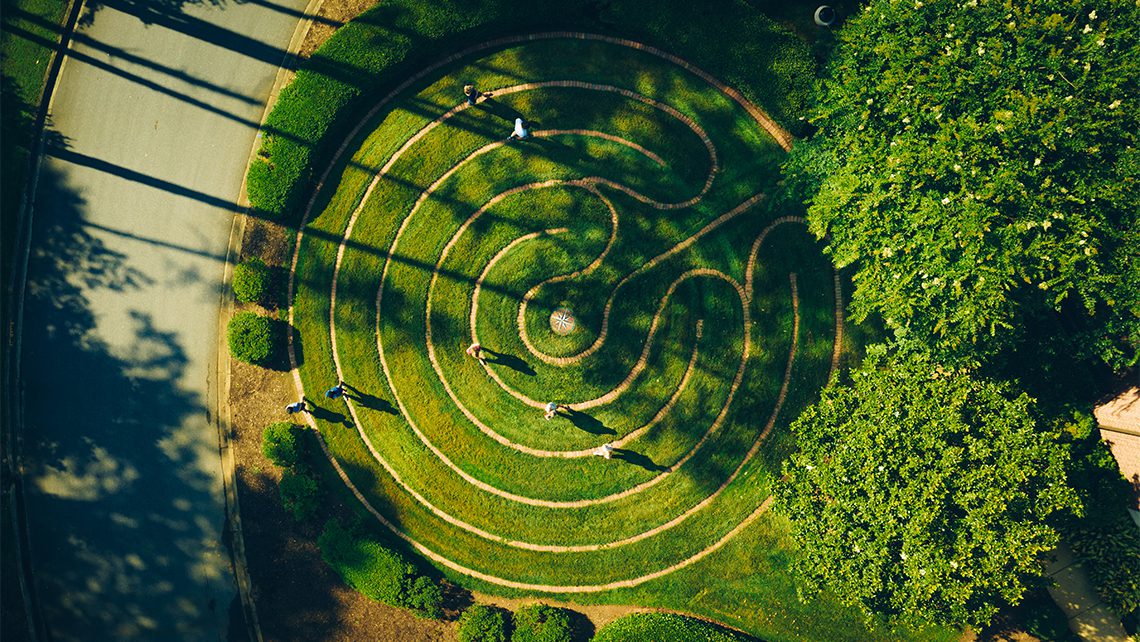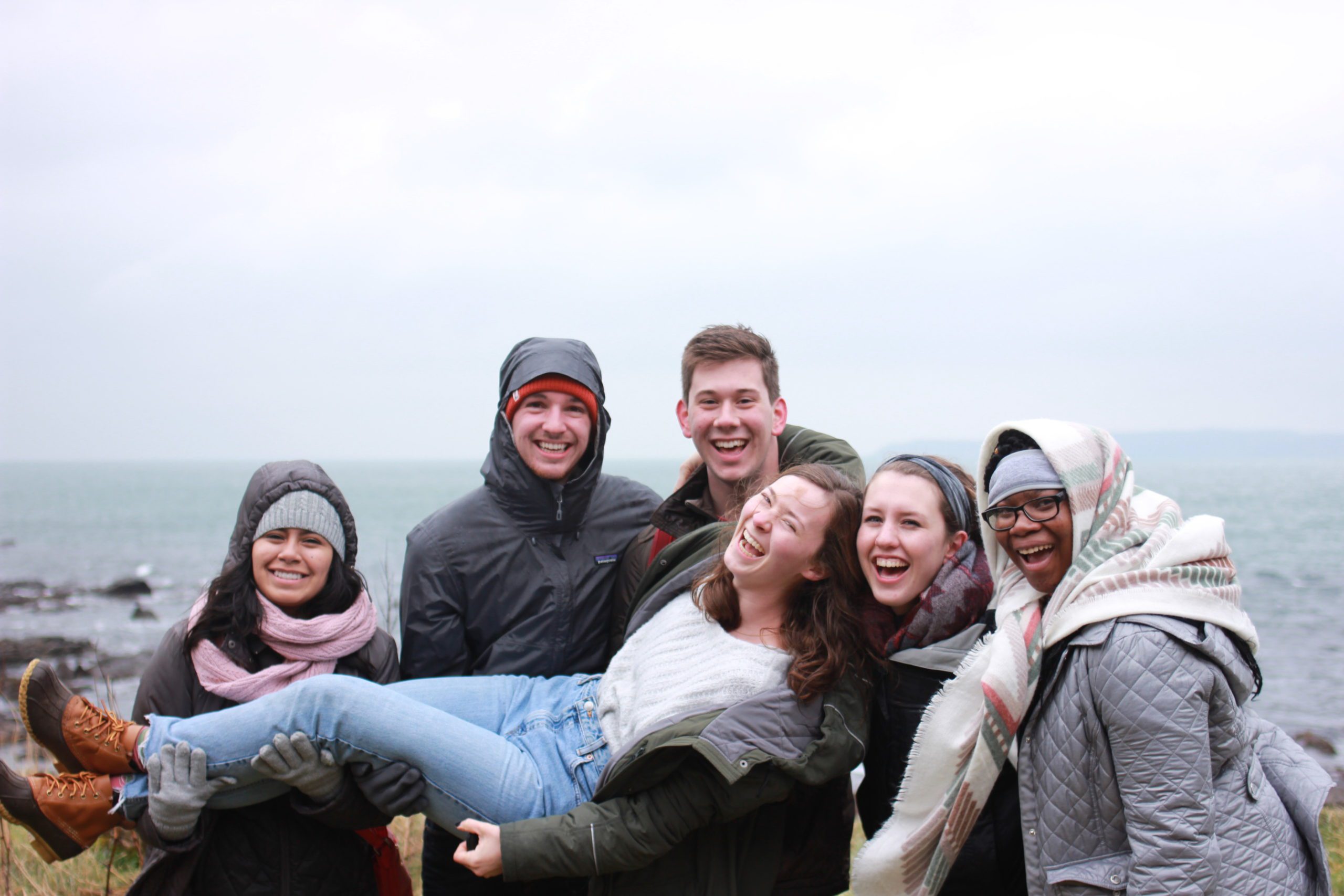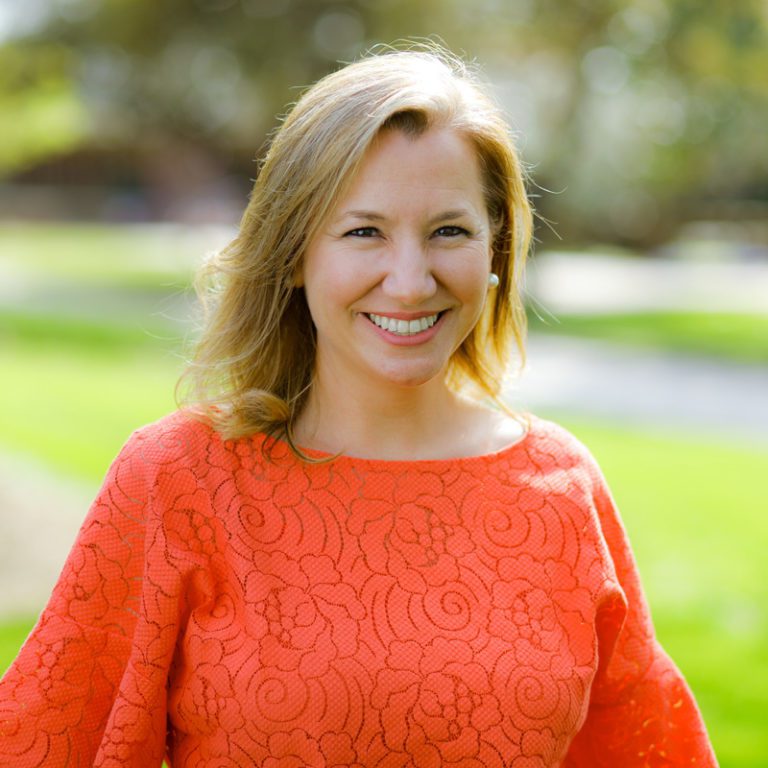Remote reflection

The disruption much of the world is experiencing right now from the COVID-19 pandemic could be the best opportunity many people have to pause and reflect.
“Sometimes we forget to slow down,” says Rolyn Rollins, program coordinator for student initiatives at the Cothran Center for Vocational Reflection.
Now that many of us are forced into a slower pace, “This is definitely a time to really start thinking about meaning and purpose, what are our values and why are those our values,” Rollins says.
Rollins and her colleagues are continuing their work remotely during the pandemic, reaching out through Zoom or the phone. On the Cothran Center’s website Meghan Slining, associate professor of health sciences and assistant faculty director, is posting Soundcloud exercises on breathing and meditation. Rollins and Whitney Brown, program coordinator for alumni and community initiatives, are posting thoughtful, thought-provoking personal essays.
Rollins connected with 30 students during the first week of remote learning. Many of them said they were bored and struggling to adjust to the new, temporary normal. For others, “the fact that their year has been cut short is starting to sink in. Seniors are starting to think about the traditions they’re going to miss,” she says.
Among the students Rollins spoke with was a senior whose plan to attend graduate school overseas in the fall was put on hold. Now, Rollins says, the student is considering deferring for a year and is starting to worry about finding a job. Another student was suddenly without a therapist; the student didn’t want to see one at home, and although Furman has therapists licensed in multiple states, none are licensed in this student’s state.
Rollins mostly listens to students, but she also encourages them to use a lot of self-care, and they discuss what self-care means.
In general, the Cothran Center staff helps people identify their calling and to think of a calling as more than a job or a profession. “It means how we’re supposed to live our life and what kind of person we want to be,” Rollins says.
Their work largely revolves around three core questions: Who am I most authentically? What do I believe most deeply? What does the world need from me?
“It’s a pathway to being more fulfilled,” Rollins says. “If we’re able to do what we love, we can better love ourselves, and better love others and the world.”
“One of the neat things about our center is that our programming involves not only students but also faculty, staff and alumni,” says John Harris, professor of math and faculty director of the Cothran Center.
“The opportunities for interaction foster advising and mentoring relationships that nicely complement those that form in the academic setting. As the recent Gallup survey about wellbeing and success indicated, and as we have known for a long time, this is something that makes Furman very special,” Harris says.
Katie Brown ’20, an English major from Evans, Georgia, got involved in the Cothran Center two years ago when she joined an annual trip of sophomores to Corrymeela, a social-justice oriented conference center in Ballycastle, in Northern Ireland, where students learned “personal mechanisms for resolving conflict and promoting dialogue,” Brown says.
An exercise the students learned early on their trip was a two-part dialogue. Someone says, “I am here to be seen” and others respond, “I see you.”
“We all go about life with these twin needs to receive and offer a sense of connection,” Brown says. Working with the Cothran Center helped her “navigate both of those realms: who I am and what I desire, and how I can more fully contribute to my communities.”

Katie Brown ’20 is held up by classmates during a trip to Northern Ireland with the Cothran Center for Vocational Reflection.
But quarantines and social distancing highlight how personal reflection fits into our on-demand, mobile society. Recognizing what’s missing can even be advantageous.
Rollins says she misses “the energy and the buzz of the students and that connection with them and my coworkers. There’s just something, a gut feeling that that’s something I’m supposed to be doing that I’m not right now. I realize by missing that, that it’s something that’s incredibly important to me. That’s why I think it’s my calling.”
Gratitude journals can also be done remotely. Listing three things every day that you’re grateful for can provide clarity about what brings someone joy and what they’re passionate about, which could provide insight into their calling.
For some people, shutting off the TV, stepping away from social media or sitting outside listening to birds is a good way to start practicing reflection, “but it’s not going to work for everybody,” Rollins says.
If you’re the more talkative type, storytelling and having conversations with others about values is also a great way to learn more about yourself. And, Rollins says, “you can learn about yourself through learning about others.”
Taking time to reflect now will have benefits on the other side of the pandemic, Rollins says. “If we can recognize our gifts now, we can better know how to meet the needs of the world.”
